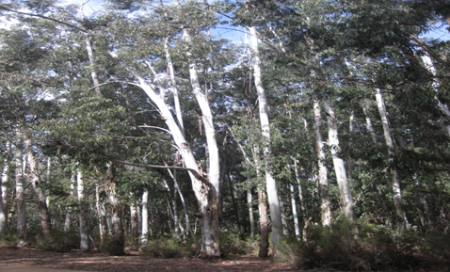
Objective:
The selection of forest species and the analysis of their behavior variability, considering the main environmental factors, remains a major concern for the forester in Tunisia. This work is prepared to answer the following question: for reforestation needs, which is the most suitable species to reach a sustainable and productive plantation? The answer can be provided in the elimination trials in the arboretum. The arboretums offer an ideal experimental support to know the requirements of the forest species and to make a selection in favor of the best adapted and the most efficient species.
Context:
In support of major reforestation operations launched in Tunisia in the late 1950s, a major research effort was made in the selection of forest species. Such an effort has led to creating a network of 28 forests arboretums across the country (Khouja, 2001), covering a variety of soil and climatic conditions, and high contrast was established. These arboretums have the advantage of being well-characterized: well-spotted sites (geographical coordinates); Well-studied environmental conditions (climate, soil, vegetation) and well-known species (geographical origin, inventory number in the original book).
Contacts:
Mohamed Larbi Khouja, khajalarbi@yahoo.fr, http://www.inrgref.agrinet.tn/fr/
Sondos Fkiri, sondesfkiri@gmail.com, http://www.inrgref.agrinet.tn/fr/
Mariem Khouja, khouja.mariem@gmail.com, http://www.inrgref.agrinet.tn/fr/
Naoufel Souyah, Souyahanaoufel@gmail.com, http://www.inrgref.agrinet.tn/fr/
Further information:
Khouja, Mohamed Larbi. (2001). Amélioration génétique : Inventaire et bilan des recherches